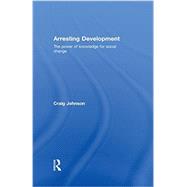
Note: Supplemental materials are not guaranteed with Rental or Used book purchases.
Purchase Benefits
What is included with this book?
| List of boxes, tables and figures | p. x |
| Preface and acknowledgements | p. xi |
| Deconstructing 'knowledge for development' | p. 1 |
| Introduction | p. 1 |
| Neo-liberalism in theory and practice | p. 4 |
| The debt crisis and the 'Washington consensus' | p. 6 |
| Neo-liberalism with a human face? 'The post-Washington consensus' | p. 7 |
| Neo-classical theory: a 'colonizing' concept? | p. 9 |
| Re-politicizing development: the elusive quest for unified theory | p. 12 |
| Arresting development? From development studies to area studies | p. 15 |
| After Marxism: 'what is to be done?' | p. 17 |
| Post-structuralism, postmodernism and 'post-development' | p. 19 |
| Outline of the book | p. 22 |
| The 'poverty of history' in neo-classical discourse | p. 24 |
| Introduction | p. 24 |
| The 'problem' of history in social science research | p. 25 |
| History and positivist social science | p. 27 |
| Debating positivism | p. 29 |
| The tragedy of the commons | p. 31 |
| Avoiding the tragedy: institutions, incentives and 'common property regimes' | p. 32 |
| The poverty of history | p. 36 |
| Inequality, efficiency and the commons | p. 38 |
| Poverty, inequality and the commons: 'entitlement approaches' | p. 40 |
| Privatizing the commons: rights, incentives and rational choice | p. 43 |
| Ships in the night: history and science in commons scholarship | p. 45 |
| Concluding remarks | p. 49 |
| Exporting the model | p. 51 |
| Introduction | p. 51 |
| Theorizing the transition: Marxism, dependency and (capitalist) development | p. 52 |
| Exporting the model | p. 53 |
| The dependency debate | p. 55 |
| World systems theory | p. 57 |
| After dependency | p. 60 |
| 'Hermeneutic Marxism': problems of agency, identity and alienation' | p. 62 |
| The postmodern turn | p. 64 |
| Postmodern politics: class, social consciousness and (class) struggle | p. 66 |
| The development 'impasse' | p. 68 |
| Beyond the impasse: the end of ideology? | p. 69 |
| The 'people without history': weapons of the weak or a weak weapon? | p. 71 |
| Concluding remarks | p. 76 |
| Development as discourse | p. 79 |
| Introduction | p. 79 |
| 'The Foucault effect': history, genealogy and 'bio-power' | p. 81 |
| Debating Foucault | p. 83 |
| Development as discourse: the politics of post-development | p. 86 |
| Post-development histories | p. 88 |
| Normalization and discourse | p. 89 |
| Visions of change | p. 91 |
| Debating post-development | p. 93 |
| Romanticism, relativism and representation | p. 96 |
| Encountering James Ferguson | p. 99 |
| Discourse, agency and power | p. 100 |
| Policy, discourse and praxis | p. 103 |
| Concluding remarks | p. 106 |
| Development as freedom of choice | p. 109 |
| Introduction | p. 109 |
| Poverty as 'capability deprivation': theorizing the work of Amartya Sen | p. 111 |
| Bridging structure and agency: Sen's theory of entitlement | p. 114 |
| Sen's theory of public action | p. 115 |
| Restricting the freedom to choose: Sen's theory of 'social commitment' | p. 116 |
| Political action and the freedom to choose . . . what exactly? | p. 119 |
| Participatory approaches: from 'PRA' to 'the SLA' | p. 121 |
| Creating capabilities: the 'sustainable livelihoods approach' | p. 123 |
| Assessing the SLA | p. 126 |
| Concluding remarks | p. 129 |
| Advancing knowledge for social change | p. 132 |
| Introduction | p. 132 |
| 'Making services work for the poor' | p. 133 |
| Debating the discipline: big theories, local processes and the art of comparison | p. 136 |
| 'Analytic narratives' | p. 138 |
| An 'anti-history machine'? | p. 141 |
| Bringing history back in: advancing knowledge for social change | p. 143 |
| Concluding remarks | p. 148 |
| Notes | p. 152 |
| Bibliography | p. 163 |
| Index | p. 180 |
| Table of Contents provided by Ingram. All Rights Reserved. |
The New copy of this book will include any supplemental materials advertised. Please check the title of the book to determine if it should include any access cards, study guides, lab manuals, CDs, etc.
The Used, Rental and eBook copies of this book are not guaranteed to include any supplemental materials. Typically, only the book itself is included. This is true even if the title states it includes any access cards, study guides, lab manuals, CDs, etc.